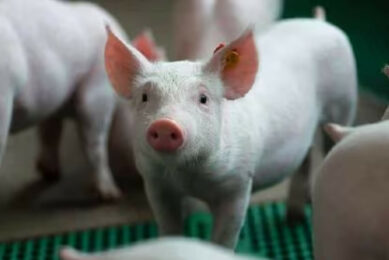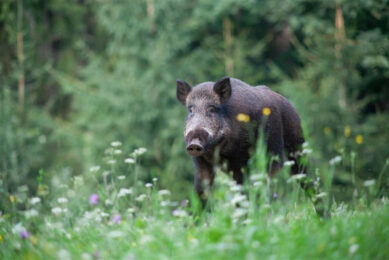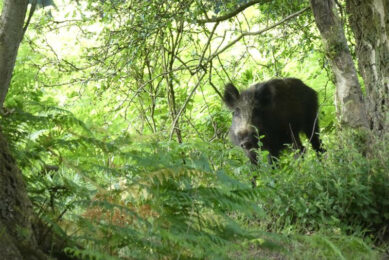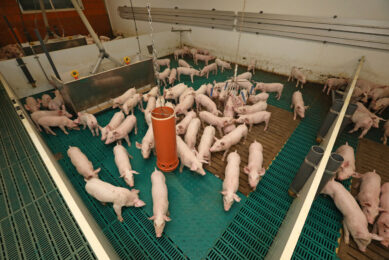FMD Germany: A heavy blow for pork producers. What’s next?

It is safe to say that nobody expected the Foot-and-Mouth Disease (FMD) outbreak in January 2025. Even though it happened in water buffaloes, German pig farmers were shocked by the first case of the virus in Germany since 1988. Market expert Dr Albert Hortmann-Scholten looks ahead at how the effects might be felt in Germany’s swine industry.
Due to the outbreak of FMD, Germany lost its status as ‘free of FMD disease without vaccination’. That has far-reaching consequences for trade with countries outside the European Union. Exports will be banned for at least 3 months, but will probably last much longer.
According to Germany’s Federal Ministry of Food and Agriculture (BMEL), the principle of regionalisation applies outside the restricted zones in domestic German and EU intra-community trade, i.e., shipments to EU member states are still possible. Nevertheless, many EU countries refuse to accept German pork.
Outbreak of FMD
The outbreak of FMD in a herd of water buffalo took place in Brandenburg state in the district of Märkisch-Oderland. It was confirmed by Germany’s national reference laboratory Friedrich-Loeffler-Institut (FLI) on 10 January 2025. Appropriate control and protection measures were immediately rigorously initiated.
The cause of entry of the disease is still unclear. The owner of the water buffalo had not visited epidemic countries or had contacts from there. The DNA of the virus type found in the buffalo was analysed and sequenced. The closest relatives of type 0 are documented in Iran and Turkey. Unheated food from these regions could possibly have transmitted the virus.
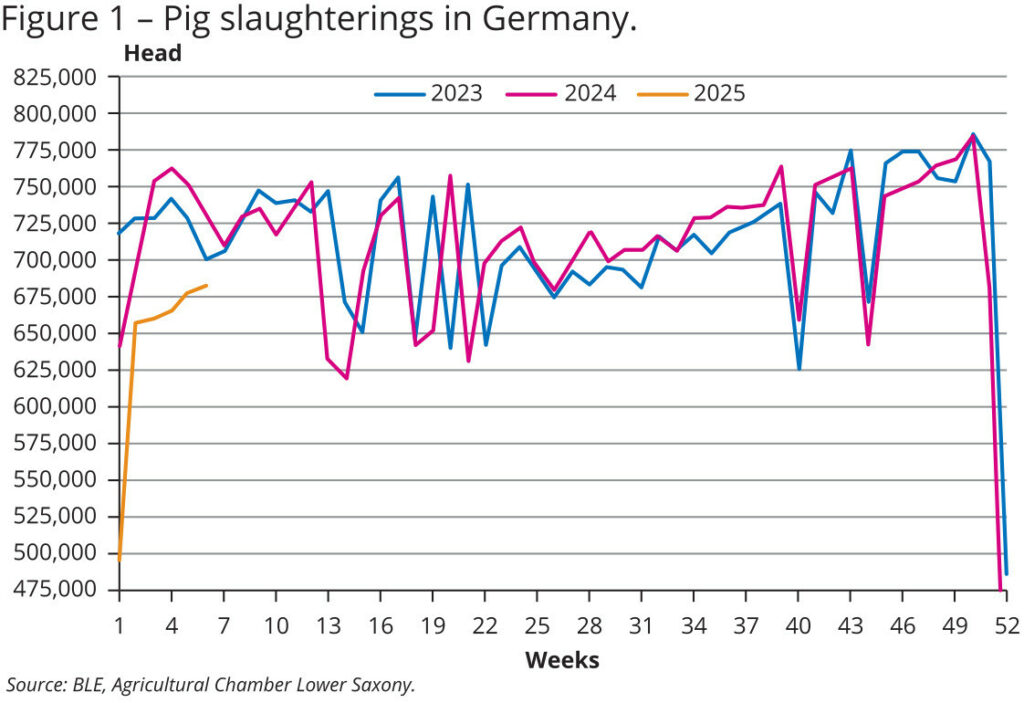
It is currently unclear whether and how the water buffalo could have come into contact with such products. However, this cannot be ruled out due to the animals being kept outdoors. The virus was discovered when the herd was examined for bluetongue disease. Experts consider it to be a positive sign that there were few farm animals in the immediate vicinity, hence only a limited number could in theory spread the virus and therefore only a limited number had to be culled. The authorities are now intensively investigating wild animal populations, which could theoretically be considered as carriers.
FMD vaccination and long-term consequences
If further outbreaks occur, German authorities could order measures such as vaccination against the disease. However, the use of an FMD vaccination must be carefully considered due to both the long-term effects on the German market and against the background of an economic impact assessment.
Suitable vaccines for the current virus serotypes are available in the FMD antigen bank. Brandenburg state therefore activated the vaccine bank on 20 January 2025 as a precautionary measure against the outbreak in order to be prepared in the event of a possible spread of the virus to other areas in Germany. However, this is not a preliminary decision for the actual use of this vaccine. In total, 20% of German exports go to third countries – but the market impact is still great.
Pig exports to Asia were already difficult
Due to the ASF restrictions, German pig exports were already excluded from important target markets in Asia, such as China and Japan. Nevertheless, slaughterhouses reported numerous additional negative consequences in marketing. Pig farmers in Brandenburg are particularly affected by the FMD outbreak and are left with their animals. This can be seen in the collapse in slaughter numbers of more than 11%.
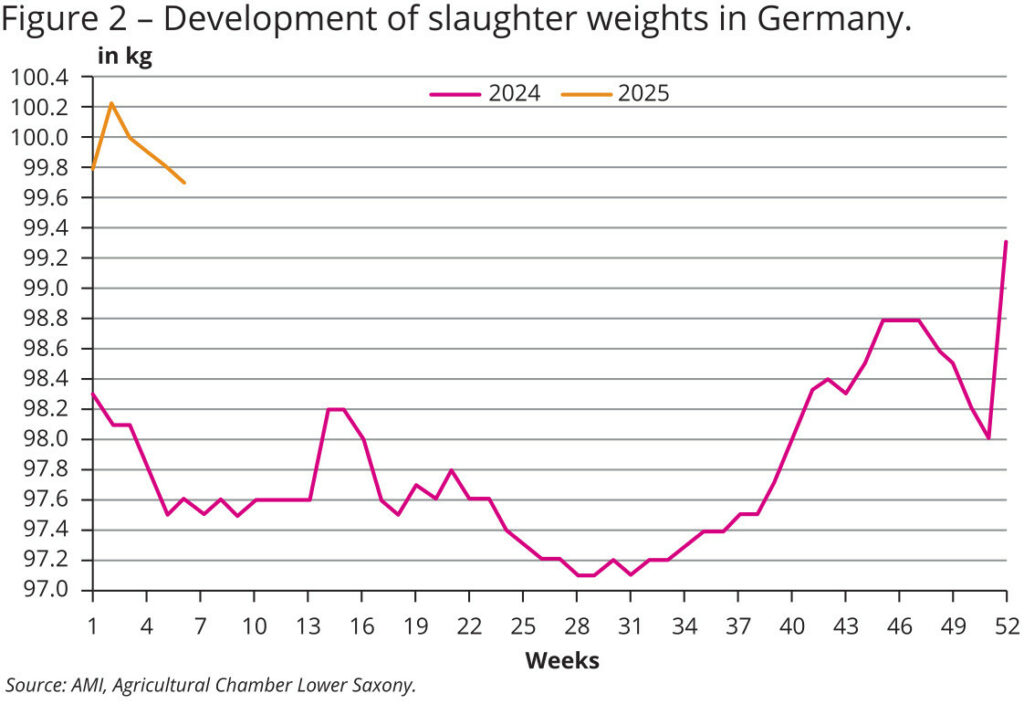
Eastern German slaughterhouses recently announced several days in the week during which only pigs from Brandenburg farms could be slaughtered. This led to greater marketing problems in neighbouring regions, as a backlog formed there. The producers were unable to market their animals on time and received quality-related price cuts because the pigs were too heavy. In January, slaughter weights in Germany were well over 100 kg slaughter weight.
Meat products waiting to be marketed
But the animal disease also has effects beyond the borders of Brandenburg, as far as Rhineland-Palatinate state, 550 km away. Hundreds of tonnes of meat products were waiting there and could not be marketed. Countries such as Singapore, South Korea and Vietnam are important export markets for by-products. Because there is no market for pig feet or bones in the EU, these are now burned in the carcass disposal. That meant a loss of added value of €15-20 per pig and led to a fall in prices.
Russia has also reacted to the outbreak of FMD in Germany and banned the import and transit of animal products from the European Union because of the animal disease. The ban is in place for at least a month.
Damage in the millions every week
All pig prices reacted negatively after the announcement of the outbreak. A drop in prices for pigs and cull sows by €0.20/kg slaughter weight in January must be attributed largely to the FMD case. As a result, piglet prices also fell by a total of €15/animal. Trade came to a standstill in some cases because importing countries temporarily refused to accept them. As finishing pig places were not freed up, the entire production chain came to a standstill right down to basic breeding.
That resulted in a drop in sales in the upstream economic sectors. Feed producers, insemination stations and other service providers had sales problems. A cautious estimate puts the damage to the pork sector at around €40-60 million per week, at least for the duration of the trade restrictions, i.e., the consequences of the loss of the ‘FMD-free’ status according to the WOAH Terrestrial Code.
The damage to the meat industry and food retail businesses has not yet been taken into account. The decisive factor, of course, is how long the damage lasts. According to market experts, it may take more than a year for meat sales to return to normal.
What happens next?
When will third country markets reopen? So far there has only been 1 case of FMD in Brandenburg. The industry hopes that Germany will be FMD-free again as soon as possible. However, exports will continue to suffer. The EU Commission’s implementing decision of 11 February 2025 means that the surveillance zones will be maintained for longer than previously planned. The aim is to not legally jeopardise the recovery of the ‘FMD-free’ status according to the WOAH Terrestrial Code and to offer third countries a concrete area to cover in negotiations on regionalisation.
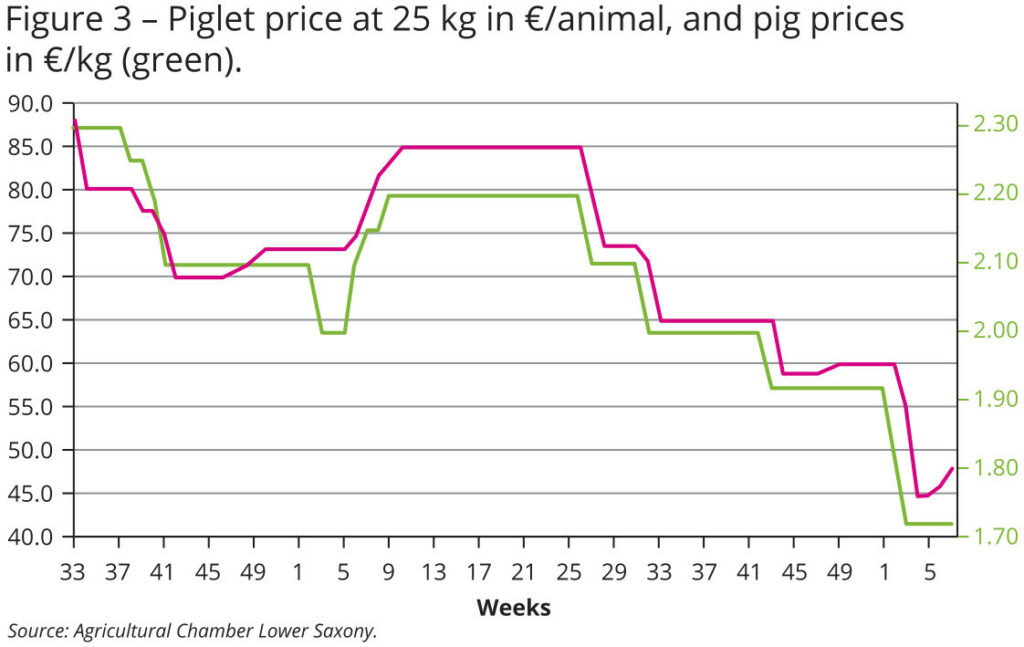
But even though there was only a single case of FMD in Germany, third country markets could remain closed for even longer. Only 3 months after the last FMD case (10 January plus completion of the corresponding control measures) can Germany regain the international status of ‘free of FMD’. That would be the end of April at the earliest. Various additional waiting periods are then specified in the export certificates for third countries, e.g., ‘6 months after regaining FMD-free status’.
That waiting period varies between 3 and 12 months depending on the country of destination. In order to shorten this time as much as possible, in addition to consistent disease control, strong initiatives by the German ministry of agriculture with the important target countries are now required in order to reopen the most important third country markets for meat exports.
Meat and dairy exports to the UK
Great Britain is a very important sales market for German meat and dairy products due to its geographical proximity and historical trade relations. The situation here is somewhat more complicated, but could also be resolved more quickly. The British are actually fundamentally obliged to apply EU regionalisation through trade agreements with the EU. The federal government is currently making great efforts to develop practical solutions.
Conclusion
The FMD outbreak is probably limited to 1 free-range cattle farm. Nevertheless, the damage that has occurred so far is in the hundreds of millions of euros. It is hoped that the reported outbreak remains a single case and that the trade restrictions for Germany will be lifted as soon as possible.



